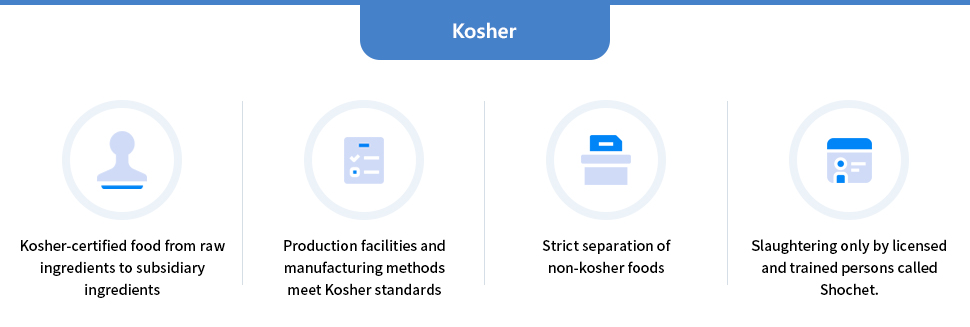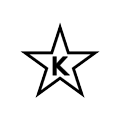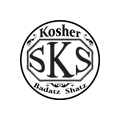Kosher
Kosher Service
The Jewish religion incorporates within its tenets a regimen of dietary laws. These laws determine which foods are acceptable and conform to the Jewish Code. The word kosher is an adaptation of the Hebrew word meaning “fit” or “proper”. It refers to foodstuffs that meet the dietary requirements of Jewish Law. Market studies repeatedly indicate that even the non-Jewish consumer, when given the choice, will express a distinct preference for kosher certified products. They regard the kosher symbol as a sign of quality.
Certification Requirements

Kosher Symbol

STAR-K (USA)

SKS SHATZ (ISRAEL)
Barometer of Kosher and non-Kosher
The barometer of Kosher and non-Kosher depends on two variables: “the source of the ingredients and the status of the production equipment”. However, the ingredient listing alone in product label, without kosher certification, cannot be used to determine whether the product is kosher. The following factors which could cause a seemingly innocent product to be non-kosher are supervised:
(1) Many additives used to enhance the flavor, texture and color of food are not kosher. Their names are often technical or vague (e.g. “natural flavors”), with the result that we do not know exactly what they are. All additives must also be processed on kosher equipment for the product to be kosher.
(2) Only “ingredients” must appear on the label. Processing agents, release agents, and other substance, often of animal origin, are technically not considered “ingredients” and usually are not listed. For example, oils and fats used to coat the pans for baked goods are not listed as ingredients and are often not kosher.
(3) Oils or shortening must be certified kosher and pareve. According to government standards, an ingredient may be listed as vegetable oil or shortening even when containing a small percentage of animal fat.
(4) The ingredients or a product may have been slightly altered, yet the manufacturer is allowed to continue using the same labels until new ones are printed.
(5) Manufacturers of certain products, such as ice cream, are not required to list ingredients at all, and therefore may list them selectively.
Certification Process
- 1.Fill the Form
- You may download the application(click here)and return it back to the below e-mail. Please specify the logistical information, list of the products and their ingredients.
ㆍKorea Office: info@iicregistrar.com - 2.Question and Feedback
- The Korea office will be available to answer your questions, address your needs and guide you through the certification process based on the application you submitted.
- 3.Plant Inspection
- A qualified Rabbi will visit your plant to observe your operation and the feasibility of certifying your products. The Rabbi will tour your plant and file a written report to USA headquarters.
- 4.Inspection Review
- Your application and inspection report will be reviewed by USA headquarters that will advise you whether or not the certification can be granted. In some instances, some system modifications may be required for certification to be awarded.
- 5.Issuance of Certificate
- Before issuing a certificate, please check the key information (company name, address, certified product, factory code).
- 6.Request for PL Certificate
- When the private label for the distributor on the certified product is needed, it must be notified in advance and request for the issuance of PL certificate.


